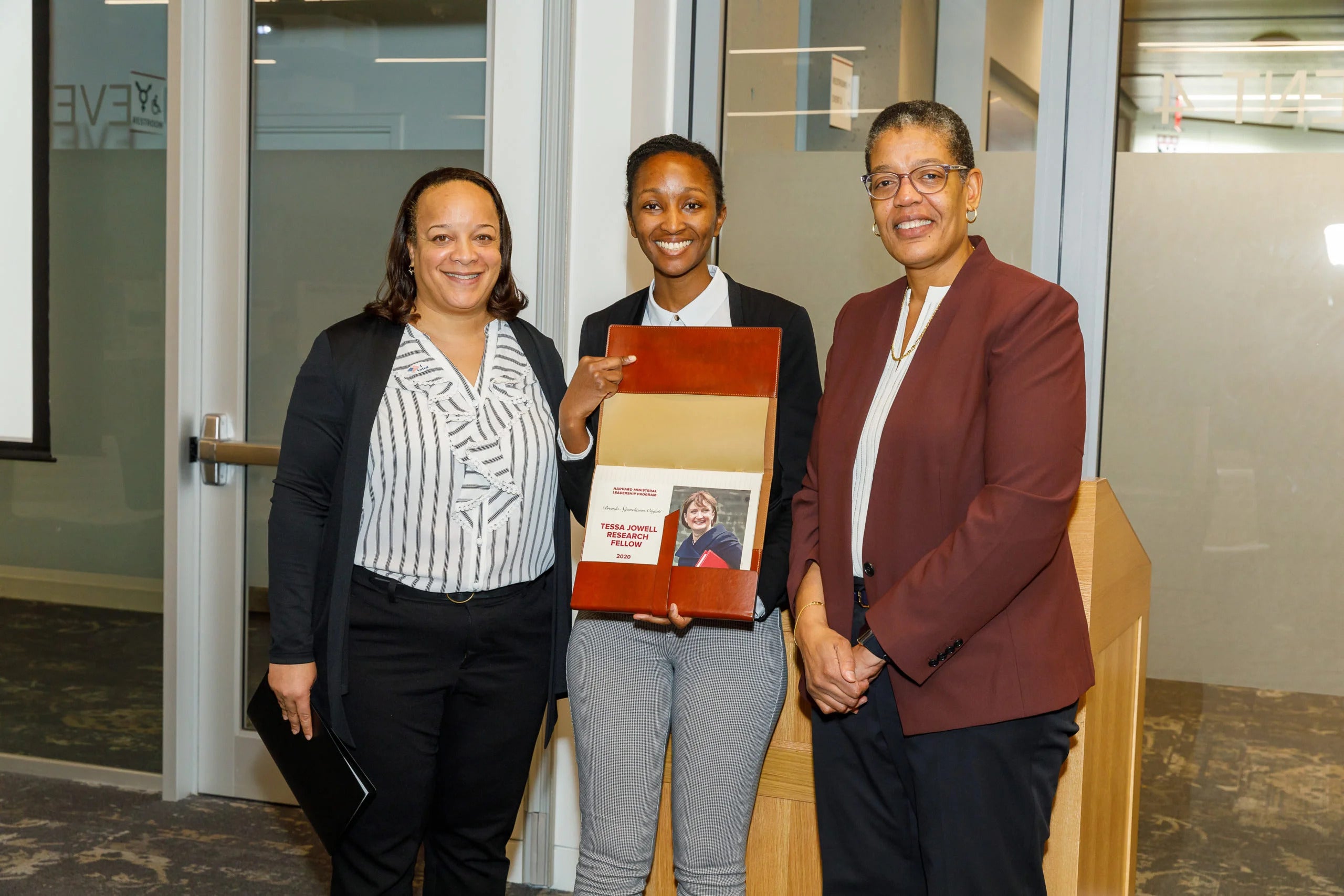The Tessa Jowell Fellowship, named in honor of the late Baroness Tessa Jowell, a founding member of the Harvard Ministerial Program Advisory Board, is annually awarded to a doctoral-level student whose research focuses on policy-related questions of priority to Ministers participating in the Harvard Ministerial Leadership Program. Applicants should intend to conduct most of their research in the subject country. This year’s Fellow, Brenda Onguti, a Doctor of Public Health candidate in the Harvard T.H. Chan School of Public Health, plans to research approaches to improving the quality of antenatal care (ANC) in public health facilities in Zambia with the goal of reducing maternal mortality rates in line with the Sustainable Development Goals.
Over the past two decades, Zambia has made significant progress in reducing its maternal mortality rate from a high of 528 deaths per 100,000 births down to 213 deaths per 100,000 births as of 2017. This is in large part due to the increased number of births occurring in a health facility (84%). Also, a majority of pregnant women receive at least one ANC visit. But Zambia is still far off the Sustainable Development Goal of less than 70 maternal deaths per 100,000 births by 2030. A key factor in further reducing maternal mortality is improving the quality of care, such as emergency obstetrics training for frontline health workers and other factors. Brenda’s research aims to identify key factors limiting progress and make recommendations for systemic improvements to the quality of maternal care.
Growing up in Nairobi, both of Brenda’s parents worked as health care providers. Her mother was a nurse and her father a maxillofacial surgeon who worked with Operation Smile, a non-profit providing corrective surgery to children born with a cleft lip or palate. They encouraged Brenda to volunteer with the organization. “Seeing the real dedication of our parents trying to alleviate ailments among people who are not able to afford care motivated me to also go into health care,” Brenda says. “ I had an interest in chemistry and I was a little uncertain about being a doctor, so my dad encouraged me to pursue a pharmacy degree.”
After graduation, Brenda joined the Ministry of Health to work in (and later head) the HIV pharmacy in a district hospital. There she observed the direct impact that stock outs of essential health commodities have on patients who were unable to afford them. Through this experience she recognized that these issues are systemic and require a policy solution. An MPH from Johns Hopkins followed by several years working for an international non-government organization on women’s health, Brenda felt she had found her purpose.
She recognized that “to truly make long lasting impactful change, I need to get the right skillset to strengthen the entire health system.” Enrolling in the Doctor of Public Health program at the Harvard T.H. Chan School of Public Health has set her on that path. The Tessa Jowell Fellowship will provide her the opportunity to travel to Zambia (once COVID-19 restrictions make it possible) to establish through research the continuing impediments to further reductions in maternal mortality and make recommendations for improving quality of care for expectant and new mothers. Longer term, Brenda hopes to have a career in applied research focused on helping shape health system strengthening in Africa. Brenda says, “the COVID-19 pandemic is a serious reckoning for African health systems.” Most developing countries she thinks will recommit to building more resilient health systems over the next decade and she hopes to be part of that effort.


